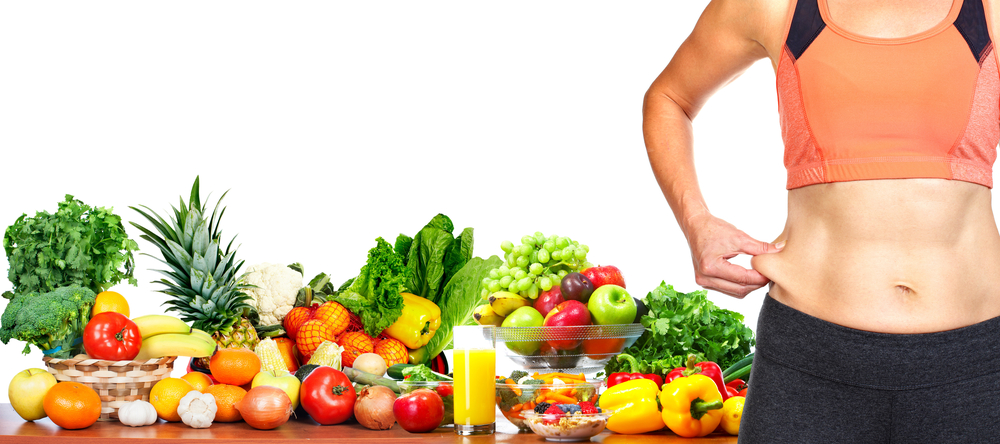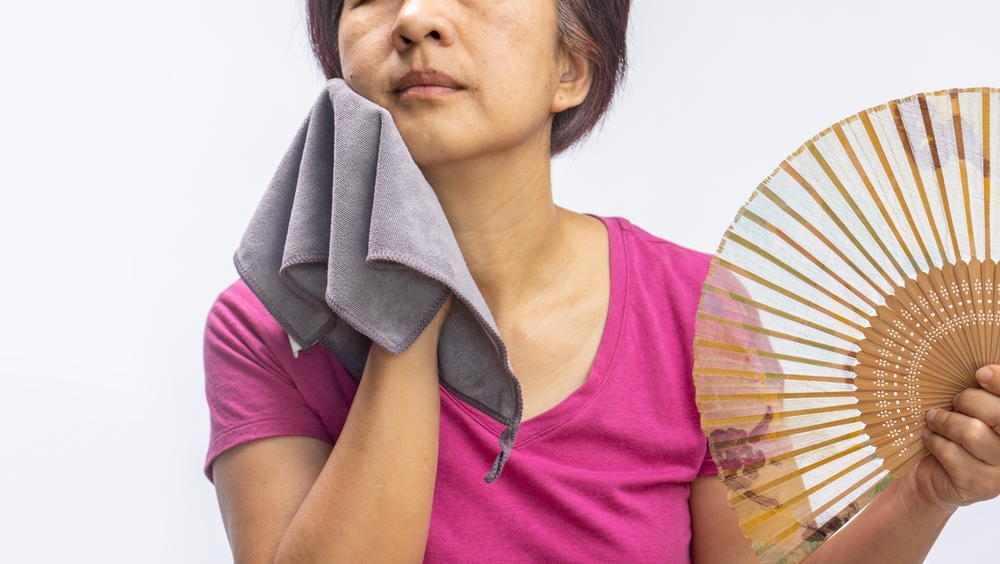Table Of Contents
Menopause brings significant changes to a woman’s body, from hormonal fluctuations to shifts in metabolism. Intermittent fasting offers a potential strategy to manage these changes and improve overall health during this transition. This eating pattern alternates between periods of eating and fasting, helping to regulate hormones, manage weight, and boost energy levels. Whether you’re experiencing perimenopause symptoms or navigating full menopause, understanding how intermittent fasting works with your changing body can provide valuable tools for maintaining wellness during this important life phase.
The Connection Between Perimenopause, Menopause, and Intermittent Fasting
To grasp the impact of fasting on menopause, it’s crucial to examine each phase. Here’s a clear breakdown:
Stage 1 – Perimenopause
This is the stage between which a woman transits from menstruating to not menstruating due to the declining levels of hormones. It can go on for several years. It includes a lack of proper menstrual cycles and general signs of PMS and increase in menopausal symptoms such as hot flashes and mood swings.
Intermittent fasting during perimenopause can aid in weight management and improve insulin sensitivity. These are key concerns faced during this transitional phase. Experimenting with IF may provide insights into how your body reacts to hormonal changes. Enhanced insulin sensitivity could potentially lower the likelihood of developing type II diabetes, a significant concern for women in perimenopause.
Before attempting fasting while experiencing perimenopause, consult with your healthcare provider. They can help assess whether this method is appropriate for your specific needs and ensure your body receives proper nutrition during this transition.
Stage 2 – Menopause and Intermittent Fasting
This stage begins when a woman has not had her menstrual for one year continuously. At this stage, the ovaries cease to release eggs, which results in even lower levels of hormones and the end of fertility.
Intermittent fasting for menopause can reduce inflammation and help with weight management. However, it’s essential to consider the risks as each person may react differently to these effects.
Bone health becomes a major concern during menopause. With decreasing estrogen levels, there’s an increased risk of bone weakening and fragility. Intermittent fasting could potentially result in nutrient deficiencies, a matter of concern when your body requires various nutrients to address its evolving requirements.
Stage 3 – Postmenopause
Hormonal changes after menopause, or at least their fluctuations, become more stable, and quite a number of complaints start decreasing. But, as the level of estrogen reduces, then there are potential health hazards such as osteoporosis, heart disease, and so on.
Fasting could effectively manage weight after menopause by reducing body fat and improving metabolism. Considering the increased risk of heart disease during this phase, the potential benefits of fasting in lowering blood pressure and decreasing inflammation are significant.
Similar to the challenges faced during menopause, there are concerns about bone loss and nutritional deficiencies. The gradual decrease in estrogen levels impacts bone strength, and extended periods of fasting could potentially worsen these issues.
Understanding these stages helps you assess how intermittent fasting might affect your personal menopause journey.
Also, read – Finding Balance in Self-Care for Women Over 40
Is Intermittent Fasting Effective for Menopausal Weight Gain?
Intermittent fasting reduces calorie intake by limiting food consumption during fasting periods. Weight loss happens when you create a calorie deficit—consuming fewer calories than you burn. This approach can be particularly beneficial for managing menopause-related belly fat, as women often gain weight due to hormonal shifts, aging, poor sleep quality, and other factors.
- In a study conducted in 2017, experts found that IF led to a reduction in calorie consumption by 650 calories when individuals limited their eating window to 4 hours.
- A recent study comparing the effects of a 36-hour fast on both men and women found that they consumed 1,900 calories on average per day even though they tended to eat more following the fasting period. Participants didn’t increase their calories after the fast, showing no compensation for the lost calories during the 36-hour fast.
- This supports intermittent fasting for women after menopause. It has been suggested by experts that these methods are beneficial for weight loss and weight management in postmenopausal women especially.

Potential Downsides of Intermittent Fasting During Menopause
Intermittent fasting appears to be a personal choice for now. However, we still lack a complete understanding of its long-term effects.
- For instance, a study was conducted on nearly twenty thousand adults, half of them were females. It established that the people who observed the 8-hour time-restricted eating had a 91% enhanced prospect of suffering from death related to heart diseases. The raised risk was recorded even among non-smokers, and it was the same in cases of patients with heart diseases or cancer.
Common Side Effects You Might Experience
The psychological and physical effects you might experience when following intermittent fasting can significantly depend on your individual health status and your chosen fasting plan. Everyone’s experience differs, but here are common challenges you might face:
- Headaches
- Feeling extra tired
- Getting a bit cranky
- Constipation
- Overindulging on non-fasting days
- Getting overweight or skinny
- Extreme weight loss is another problem that, if not well controlled, may lead to catastrophic results in society
- Upset stomach or nausea
Always choose techniques that suit your body and personal health needs!
How to Safely Adapt Intermittent Fasting During Menopause
- Your body knows best, especially during menopause. If you’re feeling extra tired or moody, it might be a sign to adjust your fasting window. First try a 12-hour fast and gradually increase it as your body gets used to the changes.
Hydration and Supplement Strategies
- Aromatize water with fresh fruits like lemon, cucumber, or berries. This not only enhances the taste but also provides a slight nutrient boost.
- Consider supplements that can support you during menopause, like calcium for bone health, magnesium for muscle function, and omega-3s for heart health.
Balancing Nutrients During Your Eating Window
- Ensure you get enough protein to support muscle mass, healthy fats for hormone production, and complex carbs for sustained energy.
Combining Exercise with Intermittent Fasting After Menopause
- Incorporate both strength training and gentle exercises like yoga or pilates. Don’t forget to take walks in nature – it’s fantastic for mental health!
Sleep Quality and Intermittent Fasting
- Good sleep is non-negotiable. Create a relaxing bedtime ritual and stick to a regular sleep schedule.
- Menopause can be stressful – meditation, deep breathing exercises, or even hobbies like gardening or painting can make a big difference.
With the right approach, intermittent fasting can become a beneficial and sustainable part of your life during menopause.
Also, read – Intermittent Fasting vs. Calorie Restriction: Which is Better?
Intermittent Fasting and Hormone Balance Post-Menopause
After menopause, your body experiences significant hormonal changes. Intermittent fasting can assist in balancing insulin levels and other hormones leading to metabolic well-being.
Weight Management Benefits for Postmenopausal Women
Struggling with post-menopausal weight gain? IF can be an effective approach for losing those stubborn extra pounds because it encourages fat consumption while preserving muscle mass.
Cognitive Benefits and Brain Health Improvements
IF may increase cognitive abilities and decrease the risks of neurodegenerative diseases by elevating the level of brain-derived neurotropic factor (BDNF) in the brain.
Sleep Quality and Intermittent Fasting
Better sleep? Yes, please! IF methods can lead to proper synchronization of your biological clock and improve sleep quality.
Energy Production and Mitochondrial Function
Feeling sluggish? Based on a study, IF could effectively improve mitochondrial function, which means you’ll have more energy for daily activities.
Hot Flashes and Metabolism: Separating Fact from Fiction

Do hot flashes burn calories? The simple answer is not really.
Hot flashes are primarily triggered by shifts that affect the body’s temperature regulation. Although they might give you the sensation of being on fire, they don’t result in significant calorie burn. Your body doesn’t require energy to generate a hot flash; it mainly involves the widening of blood vessels near the skin to release heat.
The stress and anxiety linked with hot flashes could potentially have a minor impact on your metabolism, but it’s not enough to classify as a substantial calorie-burning process.
Practical Intermittent Fasting Schedules for Women Over 50
| Time | Activity/Meal | Description |
| 6:00 AM | Fasting begins | Start of the fasting period. Hydrate with water, herbal tea, or black coffee (no sugar/cream). |
| 7:00 AM | Morning exercise | Light to moderate exercise such as walking, yoga, or stretching. |
| 9:00 AM | Hydration break | Continue hydrating with water or herbal tea. |
| 12:00 PM | Midday check-In | Keep busy with work, hobbies, or other activities to distract from hunger. |
| 2:00 PM | Hydration break | More water or herbal tea. Optionally, you can have a cup of bone broth. |
| 10:00 AM – Noon | Eating window begins | Break your fast with a balanced meal. |
| 3:00 PM | Afternoon snack | Healthy snack like a handful of nuts, Greek yogurt, or a piece of fruit. |
| 5:00 PM | Dinner | Balanced meal including lean protein, whole grains, and plenty of vegetables. |
| 7:00 PM | Evening snack | If needed, a light snack such as a piece of dark chocolate or a small bowl of berries. |
| 8:00 PM | Fasting begins | End of the eating window. Resume fasting and hydrate with water or herbal tea. |
| 9:00 PM | Wind down | Relaxing activities such as reading, meditation, or a warm bath. |
| 10:00 PM | Bedtime | 7-8 hours of sleep to support your health and weight loss goals. |










